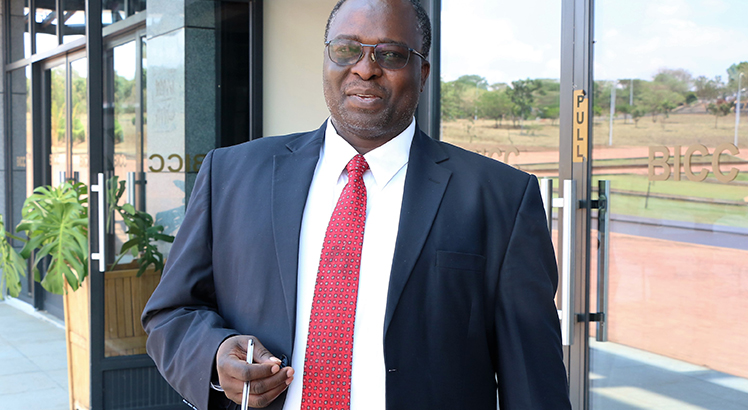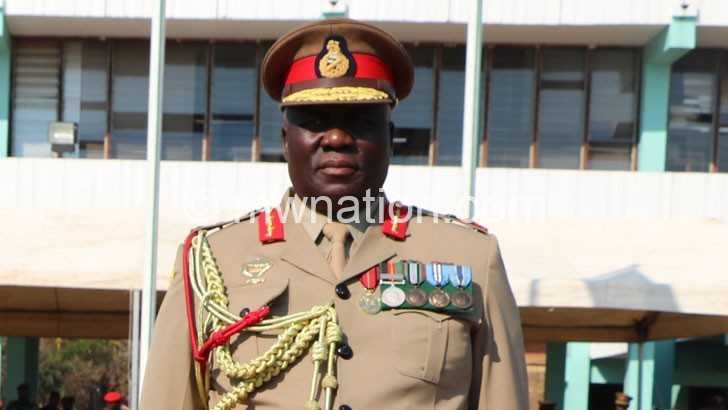Planes deal gets messy
Government is caught up in a procurement mess involving two aircraft Malawi Defence Force (MDF) bought from China, leaving Treasury with an estimated K50 billion bill it does not recall budgeting for, Weekend Nation has established.
And Secretary to the Treasury (ST) MacDonald Mafuta-Mwale on Thursday said he has been trying to get documentation from MDF, including the actual contract, but has not been furnished with any.

Mafuta Mwale also worried that the transaction could send the national budget into disarray.
Moreover, Anti-Corruption Bureau (ACB) spokesperson Egrita Ndala said in a written response on Thursday that their records show they did not vet the contract as required by law.
Section 37 (11) of the Public Procurement and Disposal of Assets Act (PPDA) stipulates that all single sourcing and high value contracts must be sent to the bureau for vetting.
MDF also bypassed the Government Contracting Unit (GCU) that vets public contracts.
In an e-mail response, the unit’s director Vincent Sikelo, said: “GCU has no record of this contract”.
GCU was created under the Office of the President and Cabinet to review, consider, vet, negotiate and pass contractual proposals between the Malawi Government and other parties before they are signed.
With the GCU by-passed, Malawians were denied the chance to determine the transaction’s value for money, especially given that PPDA confirmed in a written response that the MDF used single source procurement method, which takes out competitive bidding.

Both MDF and Treasury have for months been tight-lipped on the deal’s exact cost, but our source familiar with the transaction said the bill is around K50 billion.
Our own Internet search indicates that the minimum price for each of the two 60-capacity MA600 planes is north of S$20 million or K40 billion for both.
But the source said the total cost hits K50 billion due to additional expenses related to training, taxes and extras to tailor the aircraft to MDF requirements.
The source further said the procurement “will have serious implications on the budget” since it was not budgeted for—not even in the current fiscal year—despite the Force taking delivery of the planes last July after initiating the process in 2019.
During the Thursday interview, Mafuta-Mwale said: “I have asked for this information from MDF and they have not yet sent to me. All I get is that the contract for the plane purchase was signed in 2019. We have asked for the contract in case we need to put in the budget if it is deemed fit.”
On January 4 2023, when we first interviewed Mafuta-Mwale for this story, he had said he was waiting for the same information from MDF.
Asked why he was struggling to get the information when he is legally entitled to get such records, Mafuta-Mwale said he will get the information as they are doing budget hearings with all ministries, departments and agencies.
Section 10 (1) of the Public Finance Management Act gives powers to Secretary to Treasury to freely access all accounts and records relating to public funds, including procurement.
Mafuta-Mwale said this is an issue that he needs to get to the bottom of and stressed that there is no way government can afford to pay this bill at once. If anything, he said, “we will have to discuss to have payment staggered, but that is after I get hold of the contract and see what terms were agreed”.
In another follow up call on January 30 2023, Mafuta-Mwale said he was still checking with MDF and also admitted that the bill would indeed have an implication on the budget.
He said he needed to get information from MDF to understand how the procurement was done and that based on information gathered, government will decide how to handle the bill.

But the questions remain on how MDF could initiate the procurement, let alone allowed to proceed to execute it before getting certification from Treasury that funds would be available for the purchase as per procurement laws and regulations.
Both the latest regulations (2020) and old regulations (2003) make it mandatory for public bodies to initiate procurement only after certification from Treasury on availability of funds.
There are no available records at Ministry of Finance that this certification was sought, according to a well-placed source at the fiscus.
Regulation 98 reads: “A procuring and disposing entity may initiate actual procurement proceedings only after; (a) the determination and approval of budgetary allocations (b) and only after obtaining certification from the Ministry responsible for Finance that budgetary allocations sufficient to fund the procurement are available, for that purpose”.
Asked how PPDA approved this procurement without confirmation of availability of funds, the authority’s public relations manager Kate Kujaliwa said the fact that government accepted delivery confirms their willingness to pay.
She said: “The approval [in 2019] was made on the basis that the aircraft shall be paid for. The fact that the Malawi Government accepted delivery confirms that it will pay for the aircraft”.
MDF took delivery of the planes in July this year at a ceremony at Chileka International Airport in Blantyre.
The Force received the two MA600 transport planes from a Chinese State-owned defence company China National Aero- Technology Import and Export Corporation, which assembled the planes.
The air forces of Djibouti, Angola, Kenya, Zambia and Cameroon are some of the African users of these aircraft.
Speaking to journalists at the function, MDF Deputy Commander Lieutenant General Paul Valentino Phiri said these two aircraft will reduce foreign travel cost for troops and VVIPs, including the President.
But since these aircraft were received, President Chakwera has chartered planes for international trips.
PPDA said this was a single-sourcing procurement, which the law permits only in exceptional circumstances; particularly emergencies, where there is only one supplier or where there is need for additional goods from the same supplier for purposes of standardisation.
MDF, once again, exploited the security card in avoiding open and competitive bidding for this high-value contract even when aircraft do not form part of a list categorised as sensitive defense items under procurement regulations (2020).
But in an interview, MDF Commander General Vincent Nundwe said this being sensitive military equipment they deal directly with manufacturers to meet specifications.
“We deal with the contractor or manufacturers directly because there are standards that have to be met and specifications. We choose from a list of suppliers depending on the price and the specifications, which we need as well as capabilities of the equipment.
“Our team here sits and chooses what needs to be bought and they have to visit the manufacturing companies and appreciate the performance of what we are buying. If it is a gun they have to test it by firing, if it is an armoured vehicle they have to drive it,” explained the MDF commander.
Nundwe said, currently, pilots are undergoing training which has taken longer due to scarcity of fuel for commercial flights, forcing them to release the Chinese trainers.
Kujaliwa said MDF’s single source approval was based on Section 37(2), which provides for a waiver from open tendering on sensitive procurement bordering on national defence or security.
Reads Section 37(2): “Subject to the approval of the Director General, the application of subsection (1) may be waived in the case of national defence or national security-related procurement to the extent that such procurement is determined to be of a sensitive nature, in accordance with regulations”.
Even in this case, ACB was supposed to vet the contract, which did not happen as the bureau says there is no record of that.
A former Cabinet minister in the immediate-past Democratic Progressive Party regime said MDF enjoys preferential treatment from administrations “because no one wants to antagonise the military for the sake of security of tenure”.
As such it gets away with a lot of what he described as dubious procurements.
Added the former minister: “This is why all these questionable procurements happen with little questions. To make matters worse, in 2019, when this procurement was made, it was a time we experienced political instability both before and after elections, therefore, one would want to have a good relationship with the military.”
MDF has been at the centre of controversy for misprocurements. Several of its officers are currently under ACB investigations connected to its various procurements.





